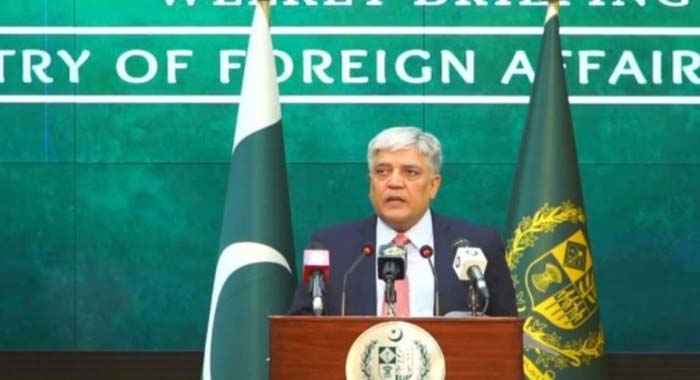Pakistan has reaffirmed its decision to proceed with the repatriation of undocumented Afghan nationals, rejecting appeals from the United Nations to suspend the process. The Foreign Office maintained that the repatriation plan, announced well in advance, will continue to be implemented in line with national laws and security considerations.
Foreign Ministry spokesperson Shafqat Ali Khan told reporters on Friday, September 5, that there would be “no suspension” of the repatriation process. He said Pakistan had already provided decades of hospitality to millions of Afghan refugees and continues to facilitate those seeking to enter the country legally through what he described as a “liberal visa policy.”
The clarification followed calls by UN High Commissioner for Refugees Filippo Grandi and UN Special Rapporteur on human rights in Afghanistan Richard Bennett, who had urged Islamabad to delay deportations in light of the recent earthquake in Afghanistan’s Kunar province. While acknowledging the humanitarian situation, the Foreign Office reiterated that Pakistan cannot indefinitely bear the economic, social, and security pressures linked to undocumented migration.
Officials underscored that the September 1 deadline for voluntary return was set after careful consideration, and ample time had been provided to Afghan nationals without legal status to regularize their stay or repatriate. Pakistan has also engaged with international partners to ensure that humanitarian assistance reaches those affected by natural disasters and conflict within Afghanistan.
Government representatives stressed that the repatriation plan is part of a broader policy aimed at border management, national security, and economic stability. They noted that Pakistan remains committed to international humanitarian principles while balancing its own national interests.
Pakistan has hosted multiple generations of Afghan refugees since 1979, often at considerable cost, and continues to cooperate with international organizations to address regional humanitarian challenges. Officials emphasized that the current policy is designed to uphold the rule of law and regulate migration in an orderly manner, while ensuring that legal pathways remain open for those eligible.





